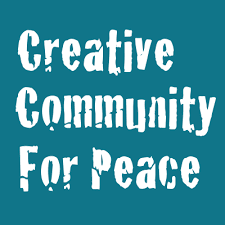In this time of social distancing and sheltering-in-place, people all over the world are spending more time on streaming sites than ever before. However, as users go digging for content to fill their time, they are also coming across an increasing amount of antisemitic content. Unfortunately, streaming services such as TikTok, Facebook, Spotify, and YouTube are struggling to implement and adequately enforce their own incitement policies on hate speech and violence.
In response to this, Creative Community for Peace has created a new Digital Taskforce to tackle this problem. We have been working with the Trust and Safety or Security Departments at these companies and have been directly responsible for removing hundreds of antisemitic videos, songs, and playlists, in addition to having an active ongoing dialogue resulting in new procedures and initiatives by these services as well.
TikTok, the explosively popular video-sharing social networking app geared towards children and teenagers, is the latest in a string of online platforms that have recently been found to be hosting troves of antisemitic content. The app, which allows users to upload minute-long videos to share with their friends, has also been hosting videos that encourage violence against Jews.
Examples of the antisemitic content on TikTok include a video that praised Middle East culture for creating “dread for the Jews” and “blows and slaughter on land and sea.” There was also an animated re-enactment of a series of four real-life terrorist attacks against Israelis. The clips included a 2015 stabbing that left two Israeli civilians dead and two injured, including a 2-year-old child, and a 2016 drive-by shooting that killed two. This graphic video depicted bullet wounds, knives slicing throats of religious Jews, and pedestrians run over by cars careening through the air.
Both of these videos have now been removed, along with hundreds of others that included anti-Jewish jokes, genocidal threats, and dehumanizing characterizations of Jews from across the political and religious spectrum, and throughout the world.
Similarly, Spotify was recently found to have many user-generated playlists that praised Hitler, called for the gassing of Jews, denial of the Holocaust, and featured profile photos of swastikas and Hitler. Examples of some of the offending playlists included: “Gas the Jews,” “Anne Frank Bash 2012 (Ima Jew),” “Anne Frank’s Gassing Up,” “Hitler’s Sexy Mixtape,” and “Hitler Did Nothing Wrong.” Many of these playlists are accompanied by odious images that mock Holocaust victims and push classic Jewish conspiracy theories.
Thankfully, Spotify has displayed an openness and eagerness to learn more about this problem and has been proactive about working with us. We have reported over 250 playlists with hateful titles or imagery in the last six months, and nearly all have been taken down.
One of the most challenging platforms to police is YouTube, which operates under the protection of the Digital Millennium Copyright act. This act effectively places the responsibility of policing on the users, who must notify YouTube of hate speech or copyright-infringing materials. Recently, copyright holders have made an effort to amend this law, with the feeling that YouTube should take more responsibility for problematic content.
However, despite a June 2019 YouTube policy that updated hate speech prohibitions to include ideologies such as White Supremacy and Holocaust denial, recently a report detailed over twenty-one hate-filled channels on You Tube.
YouTube, and other digital streaming sites, such as SoundCloud, also host dozens of antisemitic artists, songs, and playlists, particularly within the National Socialist Black Metal (NSBM) genre. This inflammatory genre pushes classic Neo-Nazi propaganda and Jewish conspiracy theories. We have worked with both sites to remove this hateful material.
CCFP was also responsible for YouTube’s removal of Louis Farrakhan’s Fourth of July Criterion speech from the Nation of Islam YouTube channel that was littered with outrageously antisemitic statements, and we helped pull the plug on a recent live webinar featuring PFLP terrorist and convicted plane hijacker, Leila Khaled.
Walking the line between hate speech and censorship is never easy. However, the glorification of terror, encouraging violence, and promoting antisemitism are clearly in violation of TikTok, Spotify, SoundCloud, and YouTube’s community standards. Given these platforms’ reach, these digital services have to continue to work hard to safeguard their sites, given the role they play in shaping young minds and influencing public opinion.
By Ari Ingel & Karys R. Oschin
– Ari Ingel is an attorney and the Director of Creative Community for Peace, a non-profit entertainment industry organization that represents a cross-section of the creative world dedicated to promoting the arts as a means to peace. Karys R. Oschin is the organization’s Manager of Strategic Research and Writing.

